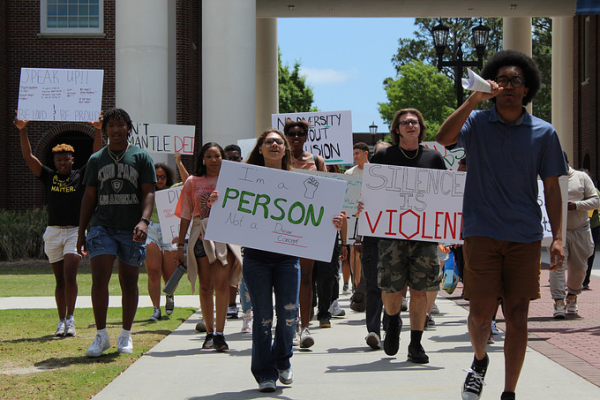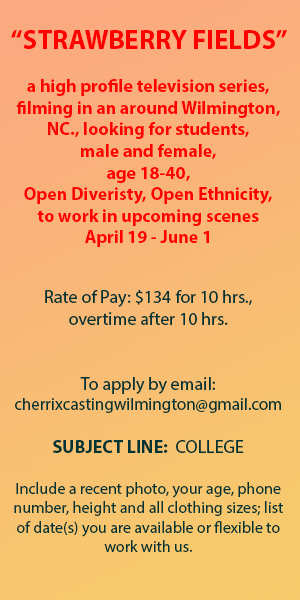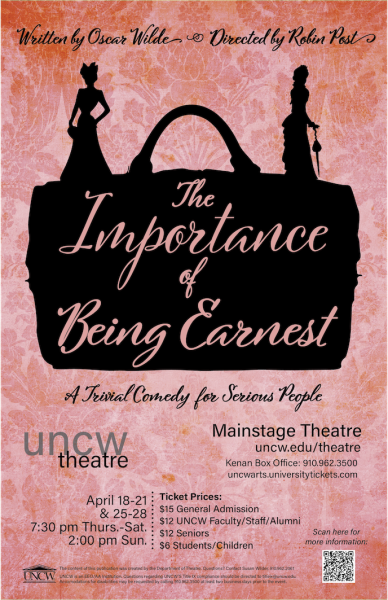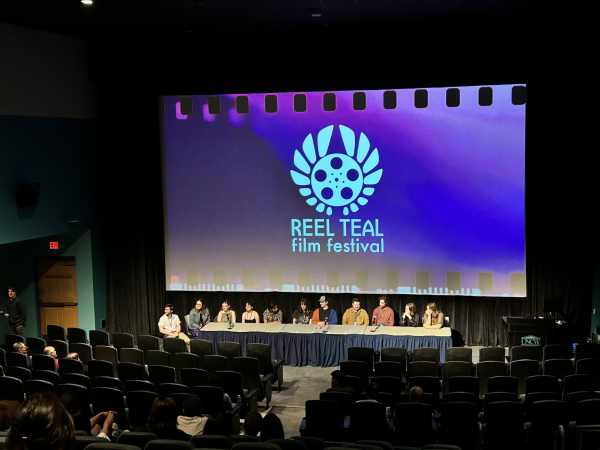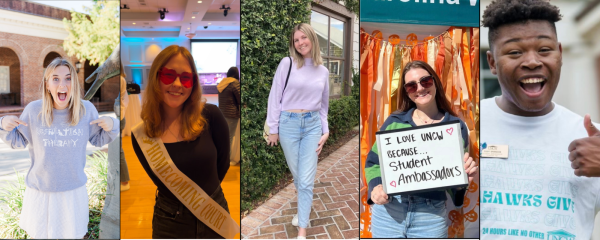Female graduates see changes in job market
June 18, 2013
About two weeks after graduating from UNC Wilmington, Hannah Eure moved 3,000 miles across the country for her dream internship, which she had secured and been working towards for nearly two years.
Eure arrived in San Francisco as a well-equipped graduate, both professionally and financially. She left Wilmington with a degree in communication studies, accompanied by a creative writing minor, and had put enough aside in a savings account to be able to afford living in the new city.
Eure’s situation is a coveted one, especially since the city she interns in was recently rated the second best big city to work in as a woman, according to “Best Places for Women in the Workforce,” a study done by NerdWallet, the information for which was acquired from the U.S. Census.
In San Francisco, the median earnings for full-time, year-round female workers is $52,301, earning 84 percent of what men make, according to the NerdWallet study.
Although this study focuses mainly on “a growing economy, a small gender pay gap and robust salaries,” these were not the determining factors in Hannah’s drive to secure her internship at the public relations firm Burston-Marsteller, nor are they the most dependable aspects to determine where someone, a woman in particular, should venture for their career.
“It’s natural that some of these cities that seem [to have] good job markets for women or new graduates are mostly cities that have a vital business community and have opportunities-period,” said Thom Rakes, UNCW’s Career Center director. “I’m skeptical of saying that it’s better for women here or there because then you’re saying that all women are looking for the same thing and they’re not.”
“I think what’s more important to look at is the type of environment they want to work in and then find the place that most suits that description,” Rakes said.
For Eure, a career that involved her love for creativity and writing, used to convey a product or idea to a consumer, was vital.
Her answer came two years ago in one of Jeanne Persuit’s classes at UNCW. The professor described an internship a young woman in one of her advanced classes had secured with Burson-Marsteller, a worldwide communications firm. It sounded just like something Eure would want in an internship.
As a result, Eure took the initiative to ask how to get in the same position as Persuit’s other student. Coincidentally, that same UNCW student ended up interviewing Eure for the intern position this past spring.
“From what I see is more and more of our undergraduates are doing internships. They’re leaving the university with not just the work experience, but the internship or service learning experience,” said Michelle Scatton-Tessier, director of the Women’s Studies and Resource Center at UNCW. “Just the idea that these kids are doing internships and creating a network as a result is giving [students] an advantage.”
Both Rakes and Scatton-Tessier stress that finding a mentor in your respective field and building personal networks (yes, even more personal than Facebook and LinkedIn) are critical factors while working towards your career. For Eure, Jeanne Persuit was a mentor to her during her undergraduate career.
“Dr. [Persuit]… invested in getting her students real-world experiences and getting them into the industry before her students have even graduated,” Eure said.
In addition, having a specific agenda and plan to get where you want to be in the upcoming years will help shape your future professionally.
“If students have an idea of a long-term goal, career wise… and think that ‘this is a job that will get me where I want to be’… [they might also ask] does it seem like an environment where they really want their employees to learn and grow and develop their skills?” said Rakes.
Eure is confident in the company’s investment in her and the other interns because they are being paid during their internship. In addition, they also provided ideal living locations for these interns and bus routes in order to find their way through a new city.
“We’re equally invested,” said Eure. “I know three of us girls have moved across the country.”
All seven of the interns recruited at Burson-Marsteller with Eure are female. They have communications degrees from different universities across the country and varying minors, ranging from international business to foreign languages. In addition, most of the staff in at her firm are women; the exception are two or three males that she spotted on her first day of work.
“I think San Francisco is more female-populated because all the women here are career-minded and interested in evolving their careers. There’s so many different outlets… There’s such an inundation of business and communication jobs that can help your career evolve, even if your interests change,” said Eure. “And they’re all creatively based. Everyone is interested in developing their creative thoughts and ideas and delivering them to their client.”
In terms of medium-sized cities in the study on NerdWallet, the Durham-Chapel Hill area was rated as the best, especially for “research opportunities and university-related jobs.” The median earnings for “female full-time, year-round workers” is $41,736, earning at least 93.5 percent of what men earn in the same area. The national average for what women earn in comparison to men is 77 cents to the dollar per year, according to the American Association of University Women. For some, the figures drop even more, with African American women earning 70 cents and Latina women earning as low as 60.
“Those types of reports that we’re both looking at usually don’t break down any type of socioeconomic profile. That’s a shame because that’s what we really need to focus on. The janitors that work here have different type of access than the administrators,” said Scatton-Tessier in reference to the study done on NerdWallet. “We also need to look at age, because women who are coming out with a BA are looking for a different type of lifestyle than the forty-five year old. Different priorities professionally and personally.”
Tessa Joseph-Nicholas, Director of Digital Arts and Humanities Projects for Computer Science at UNC Chapel Hill, has noticed increases in awareness and resources in terms of attitude and atmosphere of support towards women during her time as both a student and teacher at UNC.
For instance, when she was a student earning her PhD and had given birth to her son, the assigned lactation room was also used by male maintenance staff on their lunch hour. This was in 2007.
During this time, Joseph-Nicholas was also hired as a TA for a woman who taught one of the courses Joseph-Nicholas now teaches at the computer science department. The professor liked to hire humanities students to grade papers. After, in what she describes as an “organic transition,” the Computer Science department was interested in Joseph-Nicholas staying on and developing the position as a Humanities and Cultural Studies person in the Computer Science Department to see if she could develop that aspect.
By the time she had transitioned to the computer science department as a faculty member, they had constructed an entire wing of lactation rooms with complimentary armchairs, sofas, telephones and refrigerators.
“Which is really remarkable considering computer science is not particularly a female-dominated field. But that sort of thoughtful gesture makes it easier,” Joseph-Nicholas said. “I have taught classes with my child in a sling on my body when I had to. I’ve brought him to the office where he could be with a babysitter while I taught. Teaching at the university level is in many ways a manageable career choice on the level of flexibility, and people understand it’s important and requires priority.”
“Women are more likely to look at flexibility when looking at the work schedule,” said Scatton-Tessier. “They’re looking to get connected. They’re looking to see if there’s some kind of community for women on a larger scale, not just professional but personal.”
This is something both Eure and Joseph-Nicholas have found in their respective fields, whether through creative outlets or more female accessibility. It is also something the NerdWallet study suggests will continue to grow in the future.
